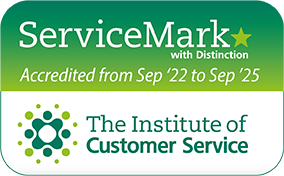If you have received an e-mail asking you to complete a survey from the ICS, please click here to read more about this request.
It’s no secret the buy-to-let market is tougher than it once was.
Rising taxes, harsher mortgage requirements and a sluggish property market has affected the private rental sector over recent years, with investors now forking out a 3% surcharge on stamp duty.
Nevertheless, the buy-to-let dream lives on as many of us consider bricks and mortar as a preferred form of investment. In fact, a total of 4.79 million privately rented homes making up the UK’s property landscape and an additional 1.3 million retirees consider becoming a landlord to boost their pension pot.
How do you make buy-to-let work for you?
Below are five key considerations:
Understand the ins-and-outs of the market
A buy-to-let mortgage is a loan for purchasing a residential property with the specific aim of letting the property out to someone else. The property itself is an investment asset on which you aim to earn a rental income and achieve capital gains over time. Therefore, before you start shopping for properties and mortgages, it is important you understand the buy-to-let market as an evolving entity. The sector has gone through big changes over recent years which can make it difficult for small-scale private landlords to cut through the noise. It is important to think forward and consider what the industry may look like in five and 10 years’ time as it shows no signs of stabilising just yet.
Get the right mortgage
Once you’ve found a potential property, you will need to obtain a suitable mortgage. This is a crucial part of ensuring your investment is profitable in the long run. The good news is plenty of banks and building societies have specifically designed buy-to-let mortgage products. This is because buy-to-let is different to standard residential which is assessed on income, your pension and your broader financial history. Instead, buy-to-let is judged by an affordability calculator which weighs up your personal income and the expected rental income against the value of the property.
Lenders will also look at your financial situation holistically and may take surplus income into account if the rental coverage (used to measure mortgage affordability) doesn’t work. This will help determine if the property is realistically affordable.
Target the right tenants
Finding the right tenant is just as important as finding the right property. Your mortgage lender will want to know who you intend to let your property to as terms may differ for demographics such as student-lets, for example.
Outsource the administration and appoint a lettings agency to find potential tenants. By doing so, the agency will conduct suitability interviews and undertake referencing procedures. There is a cost involved as a 10 to 15% of your gross rental income will be sliced off the top to manage your property.
Start small
Buy-to-let is an exciting venture; however, do not run before you can walk. Start small and then look to grow your portfolio. Make sure you have a solid financial foundation and keep an eye on cash flow – does your rental income cover your mortgage? How long is your property empty for? After all, you are running a business so best practice and common sense applies.
Expect an empty nest
Do not assume your property will always house tenants. Prepare and plan for periods of time when the property is unoccupied as you need to have a financial plan in place meet the monthly mortgage payments. When you do have regular rental income, make sure you use a percentage of your earnings to top-up your savings account for emergencies, such as urgent repairs.
For further information, read our buy-to-let guide or visit buy-to-let mortgage page for a full listing of our products.
If you'd like to talk to us about a buy-to-let mortgage, pop into your local branch or contact us to arrange an appointment with one of our qualified mortgage advisers.
OUR MORTGAGE IS SECURED ON YOUR HOME. THINK CAREFULLY BEFORE SECURING OTHER DEBTS AGAINST YOUR HOME. YOUR HOME MAY BE REPOSSESSED IF YOU DO NOT KEEP UP REPAYMENTS ON YOUR MORTGAGE.






